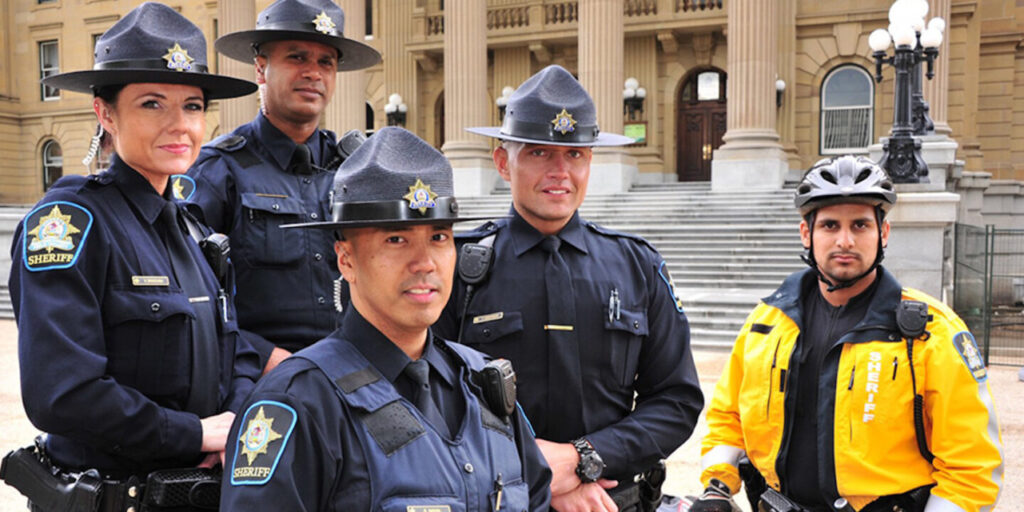- The difference between a divorce and an annulment - April 15, 2024
- Hidden costs to be aware of when buying a house - April 3, 2024
- The rules about legally transporting a firearm in Canada - April 1, 2024
By LegalMatters Staff • Alberta is getting more sheriffs to handle specific tasks that are mostly indirectly related to fighting crime.
When the provincial budget was released in April, it set aside $2 million to create a Fugitive Apprehension Sheriffs Support Team (FASST) team. This group – consisting of 10 sheriffs based in Calgary and another 10 in Edmonton – will be dedicated solely to identifying and arresting suspects wanted on serious charges.
The province says that as of February 2023, there were “4,200 prolific violent offenders with outstanding warrants in Alberta, though it is unclear how many of those people are still in the province.
Calgary criminal lawyer Matthew Deshaye says many people do not understand the role of sheriffs.
“Alberta sheriffs are peace officers, not police officers,” Deshaye says. “They can enforce specific statutes, such as provincial legislation or municipal bylaws, but not Criminal Code offences.”
He says sheriffs have five main responsibilities in the province:
- transporting inmates to court and ensuring the safety of elected officials in the legislature;
- communications and monitoring surveillance equipment and informing response agencies of emergencies;
- surveillance and gathering evidence, along with investigating specific property-related complaints;
- traffic enforcement, investigating collisions and commercial vehicle inspections; and
- enforcement of fish and wildlife legislation.
“Most of these duties do not require sheriffs to be armed,” Deshaye says, adding that some sheriffs do carry weapons when working alongside police officers.
He notes that some people are questioning if creating the FASST unit is the best use of provincial resources. He points to comments from Temitope Oriola, professor of Criminology at the University of Alberta.
According to a news report, Oriola questions if the FASST unit will have the capabilities or resources to do its job since no one knows if “it will enjoy the cooperation of the police services that are supposed to cooperate with it … this seems to me like a policing fetish,” he said. “It seems to be more about narrative control rather than a solution to the problem of crime.”

